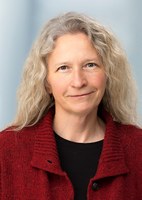“The potential of forests to mitigate climate change may be overestimated”
Freiburg, Nov 20, 2023
Forests are considered an important building block in the fight against climate change because they store large amounts of carbon dioxide (CO2). As a result, the United Nations (UN) decided in 2021 to halt global deforestation by 2030. The progress of these efforts will be discussed at the upcoming United Nations Climate Change Conference in Dubai (30 November to 12 December 2023).
“However, this discussion is partly based on false assumptions and underestimates the risks our forests are facing,” says silviculture expert Prof. Dr Jürgen Bauhus. Together with forestry economist Prof. Dr Marc Hanewinkel and soil ecologist Prof. Dr Friederike Lang, he is researching at the Faculty of Environment and Natural Resources at the University of Freiburg into how the forests of the future can continue to fulfil their important functions for humans and nature. According to the three researchers, the UN has been far too optimistic about the role forests are able to play in climate protection.
Forests can become sources of CO2
“Forests themselves are also victims of climate change,” says Lang. “Climate change is leading to more frequent and stronger extreme events such as heat, storms, forest fires and long dry spells that cause the soil to dry out. The changed conditions favour the spread of pests and pathogens and decrease the vitality of many tree species in their native areas.” This leads to increased mortality of trees, which can then no longer absorb CO2. As a result, some of the CO2 already stored in trees and soil is released back to the atmosphere.
Video interview with Friederike Lang
In order to preserve forests as important carbon sinks, the most important thing is to limit global warming. If the use of fossil fuels is not reduced quickly and massively, “then it would be naive to believe that forests, by storing atmospheric CO2 as carbon in the ecosystem, could cause negative emissions on a scale that would limit a rise in global temperature to 1.5 or 2.0 °C,” warns Hanewinkel.
Active adaption to climate change
The researchers recommend that the UN Climate Change Conference should therefore think differently about forests. “Current approaches to preserving and restoring forests focus too much on the past,” says Bauhus. Too often, attempts are made to preserve forest ecosystems as they were decades ago. However, because the living conditions for flora and fauna are rapidly changing due to climate change, this approach is usually futile. Instead, “a combination of natural development and active forest management is needed to adapt our forests to the new conditions as quickly as possible.” This includes, for example, trials with alternative tree species as well as forest rejuvenation and diversification.
Video interview with Jürgen Bauhus
Shaping the forest’s social and economic transformation
Social factors should also be taken into account in the controlled adaptation of forests to climate change. The forests would change their structure and composition as a result of the adaptation, and this could “trigger resistance among people, for whom their familiar forest is important as a recreational and leisure area, for example,” says Hanewinkel. It is therefore crucial to keep the public well informed about the necessary adaptation measures and to mediate between the various social demands on the forest.
Climate change adaptation in forests is also made more difficult “by the incoherent goals of policies for forest and biodiversity protection” and by leakage effects that shift greenhouse gas emissions and biodiversity impacts to countries with weaker regulation, adds Bauhus. “Therefore, we need to improve how we coordinate measures at the international level.”
Hanewinkel emphasises that policymakers must also provide stronger economic incentives for adapting forests. “At the moment, forest owners are only paid for the wood they produce. However, forests fulfil many more ecosystem services: They bind CO2, store water, protect soils, strengthen biodiversity, serve recreational purposes and much more.” If these important services were adequately compensated, the three forestry experts agree that this could be a significant step towards preserving forests and adapting them to climate change.
Video interview with Marc Hanewinkel
Jürgen Bauhus, Marc Hanewinkel and Friederike Lang are available for media enquiries. Together they are spokespersons for the Cluster of Excellence initiative Future Forests. Further information on this and the overall Freiburg Excellence Strategy can be found here:
https://uni-freiburg.de/university/topics-in-focus/excellence-strategy/

Jürgen Bauhus
Chair of Silviculture
University of Freiburg
Tel: +49 761 203 - 3677
e-mail: juergen.bauhus@waldbau.uni-freiburg.de
Foto: Jürgen Gocke

Marc Hanewinkel
Chair of Forestry Economics and Forest Planning
University of Freiburg
Tel: +49 761 203 - 3691
e-mail: marc.hanewinkel@ife.uni-freiburg.de
Foto: Jürgen Gocke

Friederike Lang
Chair of Soil Ecology
University of Freiburg
Tel: +49 761 203 - 3625
e-mail: friederike.lang@bodenkunde.uni-freiburg.de
Foto: Jürgen Gocke
Contact:
University and Science Communications
University of Freiburg
Tel.: +49 761 203 4302
email: kommunikation@zv.uni-freiburg.de

